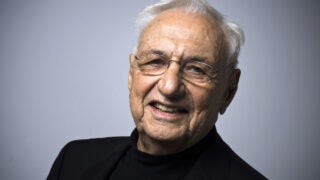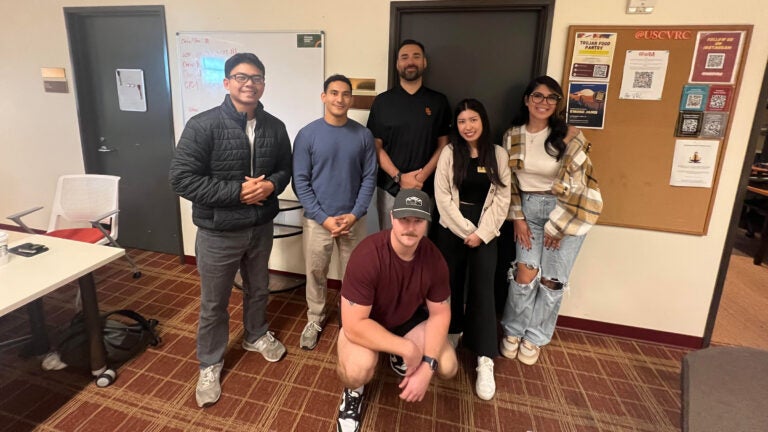
Chhai Chhet, Guillermo Coronado, USC Veterans Resource Center supervisor Christopher Meraz, Nea Ocampo and Brianna Ramirez (back row, from left) and Christian Romero (front) pose in the center. (USC Photo/Greg Hernandez)
After serving their country, Trojan veterans band together to embrace life at USC
The USC Veterans Resource Center serves as a campus anchor for studying, personal development and camaraderie.
When junior Brianna Ramirez of the Keck School of Medicine of USC walked into the USC Veterans Resource Center between classes last week, she was warmly greeted by more than a half-dozen fellow Trojans who, like her, had spent several years serving their country in the military.
Even if it hadn’t been Ramirez’s 26th birthday — which she joyfully announced as she took a seat at a community table — it’s a safe bet that she would’ve been greeted just as warmly in this space on the third floor of the Ronald Tutor Campus Center, where the camaraderie among students and staff is palpable. Once a veteran swipes their student ID card at the front desk, they are typically greeted by each person in the room unless someone is in study mode with headphones on.
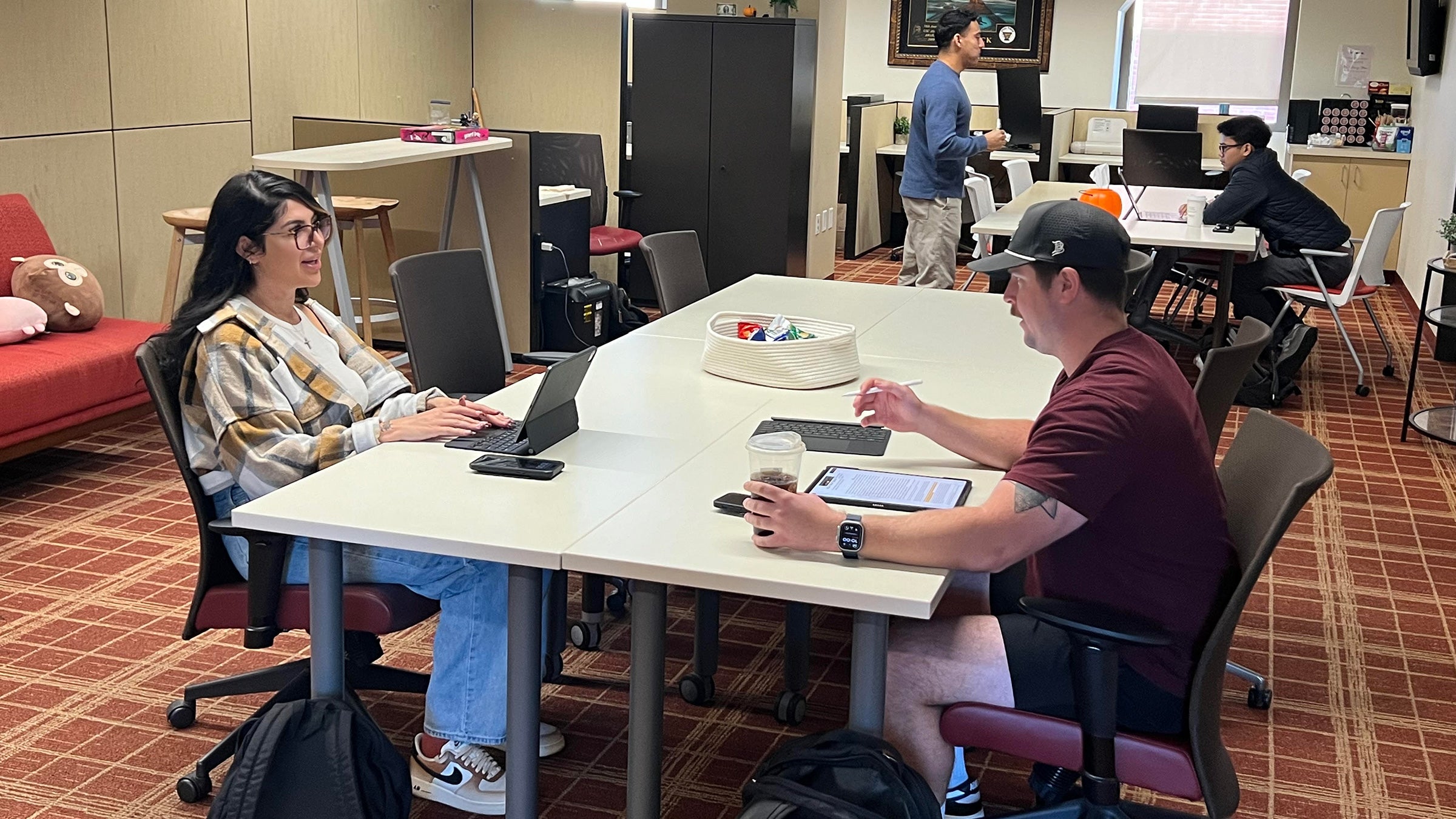
“It’s just really family-oriented here, and it feels so comfortable,” said Ramirez, who served in the U.S. Air Force from 2018 to 2022. “If I need a break from class or schoolwork or anything, I will literally come in here and there’s always someone to talk to. It’s also nice to be around people who have experienced some of the same things that I’ve been through.”
The center serves more than 1,000 veterans currently enrolled at USC as they transition from life in the military to life as a Trojan, providing study spaces, computer stations and opportunities for personal and professional development. It’s also a place for students to check in and socialize during lunch or at any time throughout the day when they have a gap in their schedule.
“I’m here so often it almost feels like I’m on staff,” said senior Guillermo Coronado of the USC Viterbi School of Engineering, who served in the U.S. Marine Corps from 2017 to 2022. “I think enrolling at USC is probably one of the best decisions I’ve made since leaving the service because there’s a great community of veterans.”
The center, which is part of USC Student Life’s Student Equity and Inclusion Programs, aims to support veteran and military-connected students through community engagement, leadership development and personal identity. It collaborates with other Student Equity and Inclusion Programs groups to highlight the interconnectedness of different student identities and experiences.
The programs and their spaces are a priority of USC President Carol Folt and consist of Asian Pacific American Student Services, the Center for Black Cultural and Student Affairs, the First Generation Plus Success Center, La CASA, the LGBTQ+ Student Center, Student Basic Needs and the USC Veterans Resource Center. After a series of renovations last year, the spaces were tripled in size from 5,000 to 15,000 square feet. During the 2023-24 academic year, the various centers and lounges saw 62,704 visitors.
“Even though we’re all in different branches and from different backgrounds, there’s that shared experience overall,” center supervisor Christopher Meraz said. “The students I’ve met and engaged with are motivated and are very interested in building the community and being a part of it.”
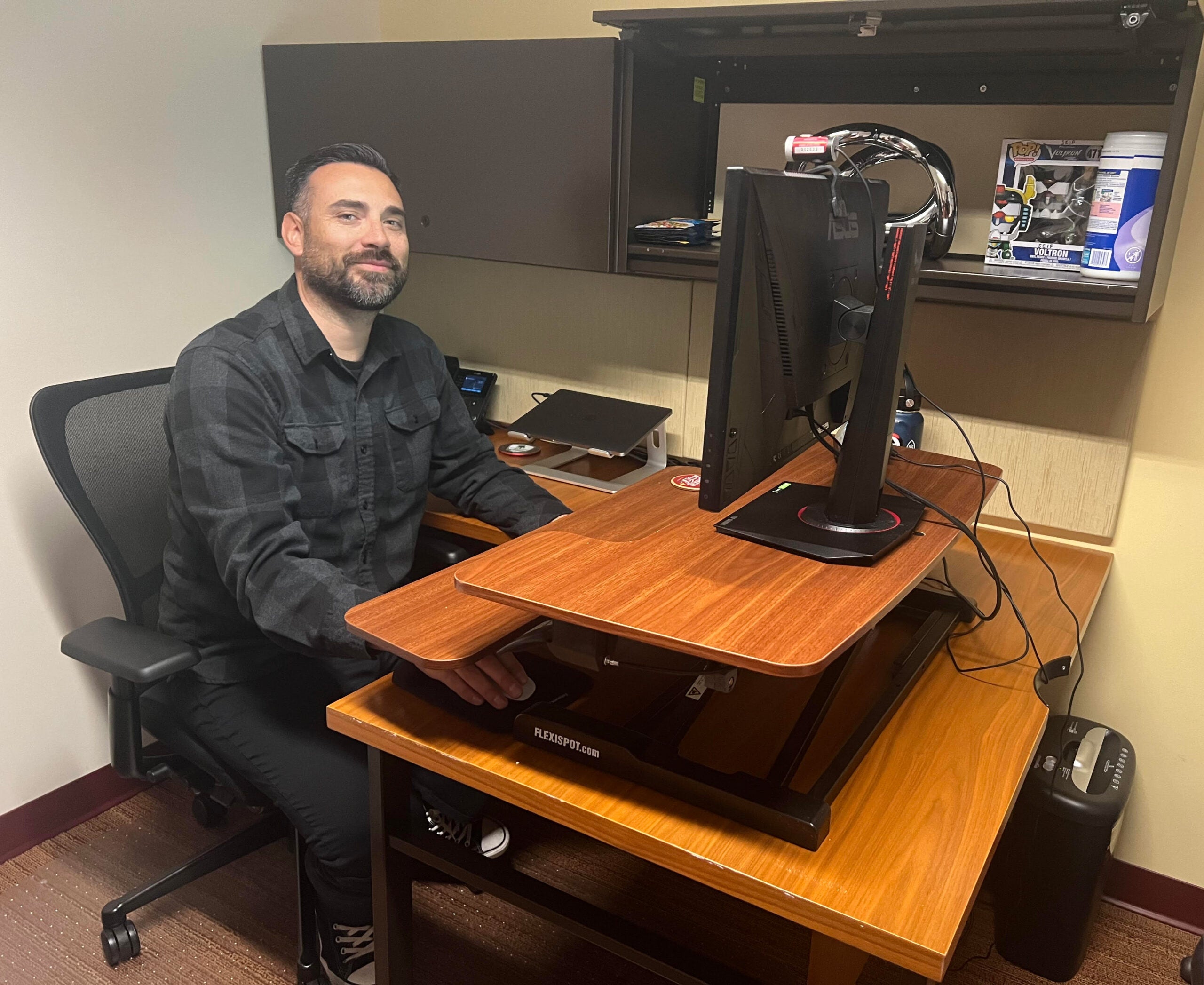
A supportive vibe
Meraz served for nine years in the U.S. Navy and oversees a part-time staff of 12 — most of them student veterans. He keeps his office door open much of the time and will often look out to take in various scenes. It might be a late afternoon game of pingpong or a dozen people sitting together in a conference room while working on their individual assignments.
“There are usually these group study sessions where it’s like silent disco,” he said. “They already have their headphones on and are all sitting around each other. It’s that motivation of, let’s just all study together.”
Senior Nea Ocampo of the USC Marshall School of Business, who works at the center, said she loves helping connect fellow veterans with services, resources and programs. She also spends time at the center even when she’s off the clock.
“I definitely feel that friendship and that camaraderie,” said Ocampo, who served in the U.S. Navy from 2017 to 2021. “They’re like my brothers: They’ve got my back, and we all like and respect each other.”
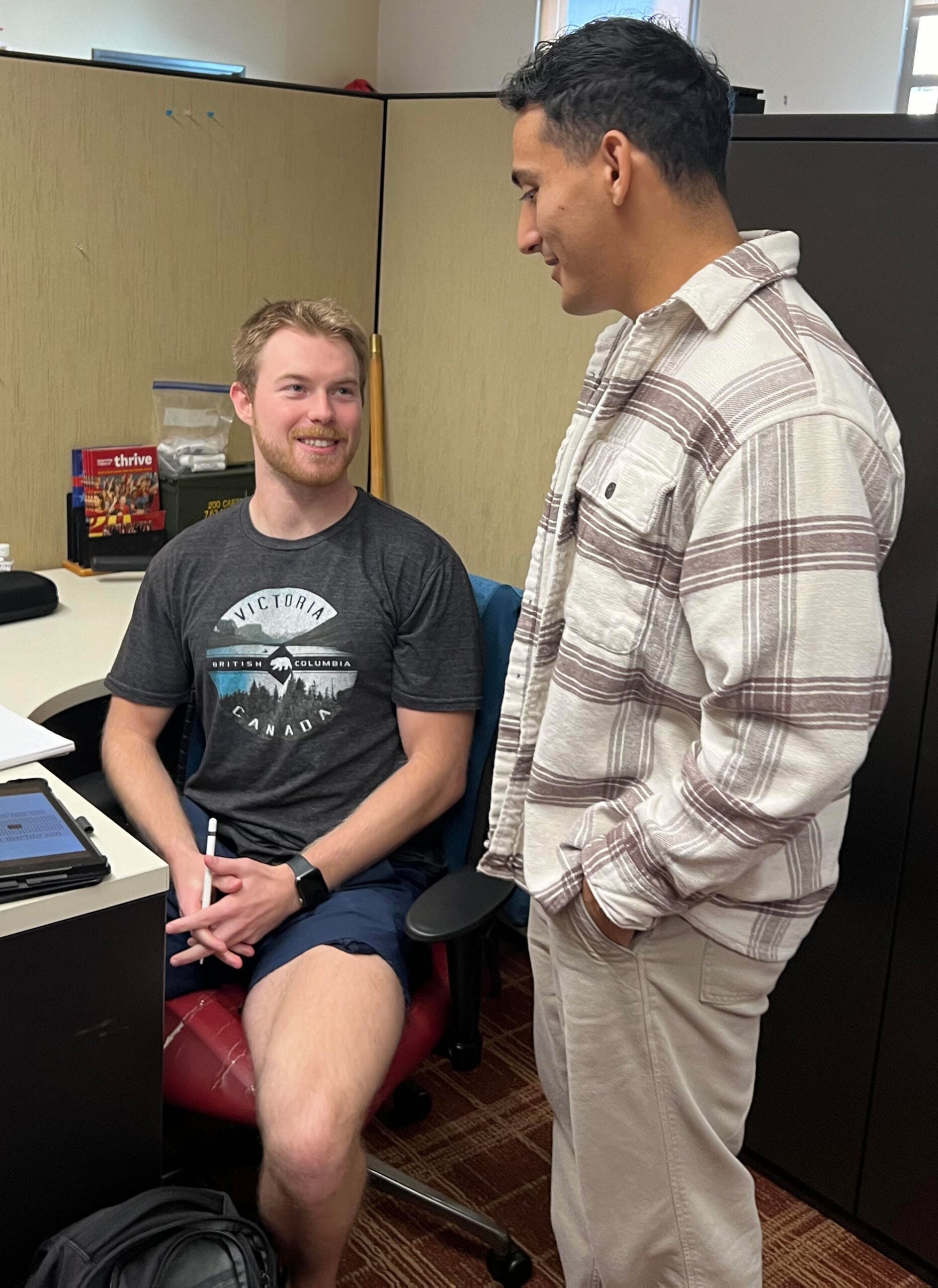
What veterans bring to USC
Coronado had deployments to Afghanistan and the South Pacific as a Marine. When he meets younger classmates and notices them struggling with a project, he sees an opportunity to “lead by example, show [his] work ethic and put some good stuff into the world.”
“Had I come to college right out of high school, I’d be a completely different person,” he said. “Those five years in the military really taught me and made me grow up. I was a team leader over there and had to be in charge of people where their lives were at stake. It’s built a lot of my character.”
USC Marshall junior Fabian Francis wanted to bring to USC “all the aspects of what I learned” while serving as a Marine rifleman from 2017 to 2021.
“There are a ton of group projects that we do in Marshall, and I’ve noticed I lean towards the side of leadership within these groups,” he said. “I came in with leadership skills already and am only developing them further. It’s also about being able to learn how to work on a team, and that’s also one of the best traits that I bring here.”
Junior Christian Romero of the USC Dornsife College of Letters, Arts and Sciences served in the Marines from 2015 to 2022. After being stationed in various locations including embassies in Japan, Zimbabwe, Kenya and Hungary, he now majors in intelligence and cyber operations at USC Dornsife. He said that his studies sometimes overlap with his military experiences, and he can’t wait to tell a fellow veteran about it.
“I’m sitting in class with people who don’t have the same types of life experiences that I might have,” he said. “But I do know that when I come [to the center], there’s numerous people that I can relate to even if we weren’t in the same branch. It’s interesting to come in and talk shop, or, like they say [in the military], the scuttlebutt.”

